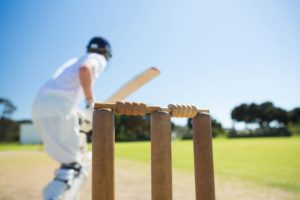Call today and speak to Kamila Jaskula, specialist head injury solicitor. Find out if you can claim compensation.
CALL 0800 083 5500

Last weekend saw the Australian batsman, Steve Smith, suffer a delayed concussion after being hit in the neck by a ball travelling at least 92mph. After receiving treatment from the Australian medical team, Smith was allowed to return to the pitch as there was no evidence of concussion. However, the next day, Smith woke up and was suffering from dizzy spells. As a result, he was then substituted for the remainder of the match, as it was confirmed he was suffering from a delayed concussion.
As with football and rugby, the professional game influences the amateur game, and so if a head injury were to occur at this level, it may not be given the attention it needs. If the professional game is seen to be dismissive of an injury, it may follow that the amateur game is also dismissive.
In the event that an amateur player suffers the same type of injury as Smith and it is not picked up, it could result in a more serious condition potentially affecting the player’s ongoing daily life, resulting in the need to make a head injury claim.
Headway, the brain injury charity, are now calling for all sports to adopt the “if in doubt, sit it out” approach to any head injury in any sport.
Headway’s deputy chief executive, Luke Griggs said
“What this incident highlights is that no test for concussion is foolproof. The signs can be delayed for several hours and sometimes even a couple of days. You cannot take any risks with concussion, which is why we have always said that all sports have to take an ‘if in doubt, sit it out’ approach.”
In 2014 another Australian batsman, Phillip Hughes, died two days after suffering a bleed on the brain after being struck on the neck by a cricket ball. Hughes collapsed on the pitch and never regained consciousness. After this tragic incident, neck guards were brought in but are not currently compulsory. Smith was not wearing a neck guard.
If you have received a head injury, either through playing sport or through another situation, you may be entitled to make a claim for head injury compensation. You can see how much you may be eligible to claim by using our compensation calculator below.
Our specialist head injury solicitors are able to offer free initial advice and work on a no win no fee basis, so if you are unsure if you have a valid claim, contact us to find out.